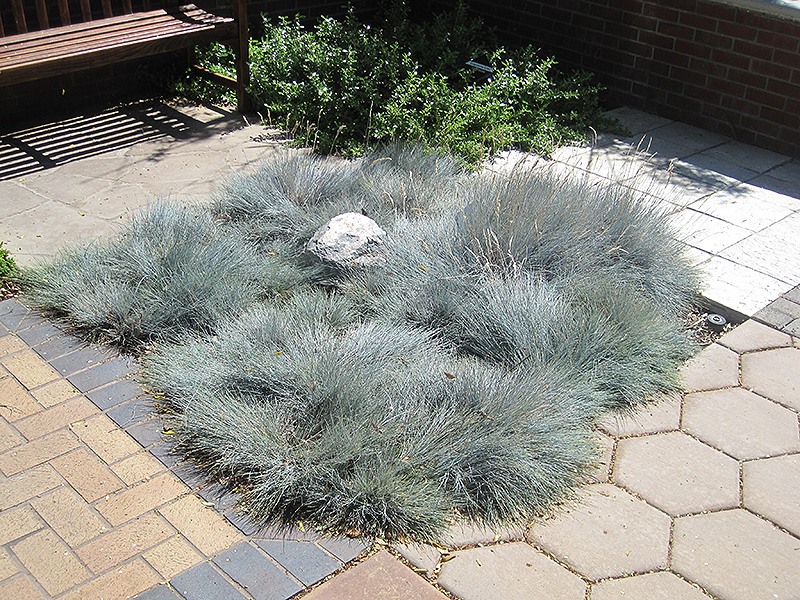Height: 12 inches Spread: 12 inches
Sunlight:
Hardiness Zone: 2b Other Names: Festuca ovina var. glauca Description: Drought tolerant once established, this selection produces beautiful bushy mounds of blue-gray grass-like foliage; excellent performance in containers, borders and garden beds; low maintenance and easy to grow Ornamental Features Blue Fescue is primarily valued in the garden for its interestingly mounded form. Its attractive grassy leaves remain steel blue in colour throughout the year. The tan seed heads are carried on spikes from mid summer to late fall. Landscape Attributes Blue Fescue is an herbaceous evergreen perennial grass with a mounded form. It brings an extremely fine and delicate texture to the garden composition and should be used to full effect. This is a relatively low maintenance plant, and is best cleaned up in early spring before it resumes active growth for the season. It has no significant negative characteristics. Blue Fescue is recommended for the following landscape applications; Planting & Growing Blue Fescue will grow to be about 12 inches tall at maturity, with a spread of 12 inches. Its foliage tends to remain dense right to the ground, not requiring facer plants in front. It grows at a medium rate, and under ideal conditions can be expected to live for approximately 8 years. As an evegreen perennial, this plant will typically keep its form and foliage year-round. This plant does best in full sun to partial shade. It prefers to grow in average to dry locations, and dislikes excessive moisture. It is considered to be drought-tolerant, and thus makes an ideal choice for a low-water garden or xeriscape application. It is not particular as to soil type or pH. It is highly tolerant of urban pollution and will even thrive in inner city environments. This species is not originally from North America. It can be propagated by division. Blue Fescue is a fine choice for the garden, but it is also a good selection for planting in outdoor pots and containers. It is often used as a 'filler' in the 'spiller-thriller-filler' container combination, providing a canvas of foliage against which the thriller plants stand out. Note that when growing plants in outdoor containers and baskets, they may require more frequent waterings than they would in the yard or garden. Be aware that in our climate, most plants cannot be expected to survive the winter if left in containers outdoors, and this plant is no exception. Contact our experts for more information on how to protect it over the winter months.![]()
![]()
![]()
![]()
![]()
![]()
![]()
![]()
![]()
![]()
![]()
![]()
![]()
![]()
![]()


